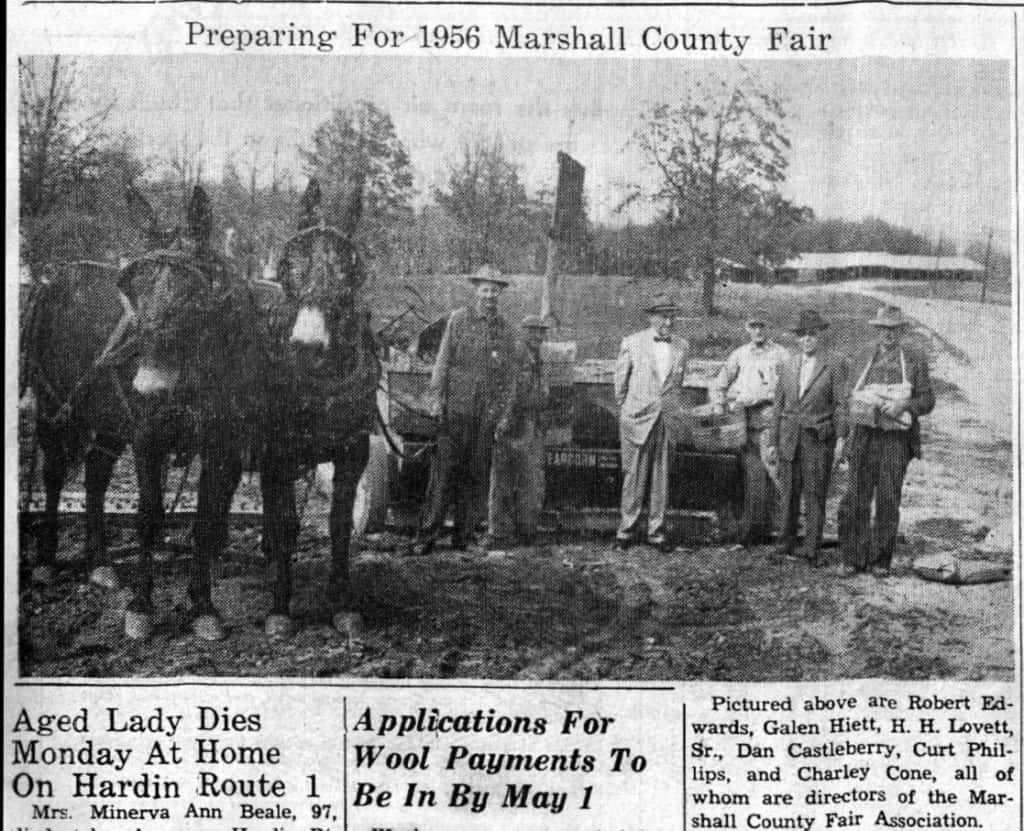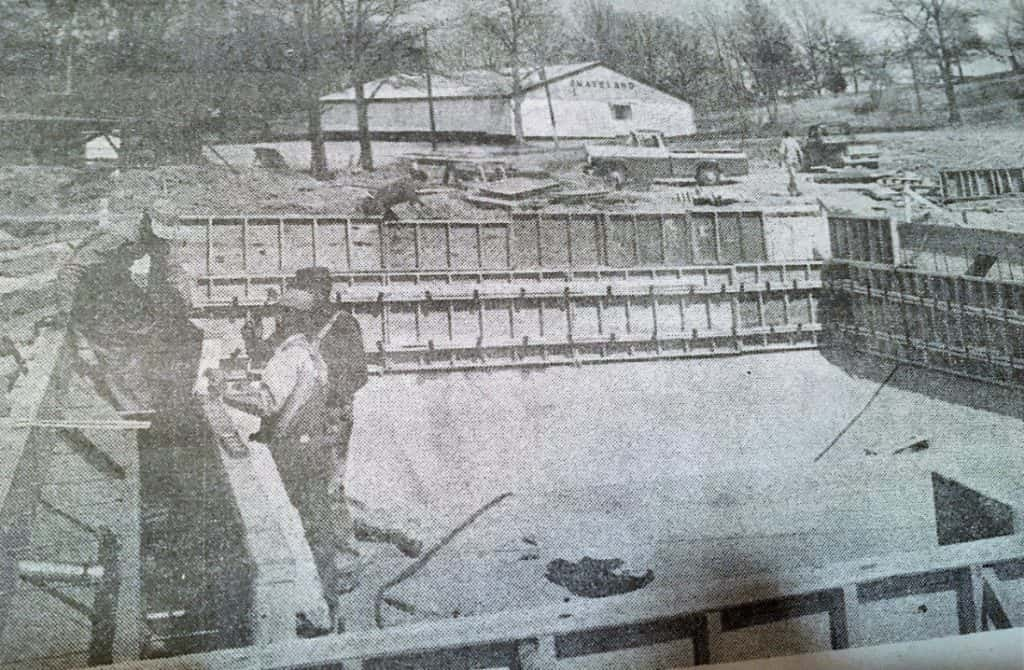THE LIFE OF JUDGE H.H. LOVETT
PART 8:
BENTON CITY PARK

One summer morning in the early 1930s, H.H. Lovett was driving to Paducah with Walter Prince to play golf when he got an idea for a city park in Benton. “That was the first time I ever had the idea for a park in Benton,” Lovett recalled in a 1962 interview with the Paducah Sun Democrat, “but somehow I just couldn’t seem to get it off my mind.”
Finally after a few years of contemplating the idea, Lovett decided to take action. He got into his car and made the trip north to Louisville to speak with his close friend and director of the Works Progress Administration in Kentucky, George Goodman, about constructing a park in Benton.
It only took one meeting with Goodman for Lovett to convince him to commit to the project. Goodman liked the idea of helping small communities build parks because he maintained that larger cities could finance their own recreation facilities. Lovett left Louisville encouraged, but one major obstacle remained. Where the park would be built?
The old fair grounds on East 14th Street did not have the adequate space for a park. Lovett, who owned all of the remaining stock in the old fair association, negotiated a deal that the four-acre plot of land, along with $850 raised by the townspeople, would be traded for an abandoned fifty-two acre farm on the south end of the city.
Lovett purchased the land which was covered with locust bushes, saplings, and saw briars, and donated it to the city of Benton with the condition that if the land ever ceased to be used as a city park, it would then revert back to his ownership. This was done to keep anyone from dividing up the land for private business purposes.
The WPA began clearing the land and construction began by the early 1940s. Eventually two baseball parks, tennis courts, a basketball court, picnic area, and a miniature golf course were constructed in the first year. “The more we can give these youngsters to do,” Lovett claimed “the less trouble we’ll have with them now and in the future.”
After the Benton City Council created the City Park Commission, Lovett was appointed and elected chairman to oversee the operations at the park. Lovett always referred to his “pet” project simply as his hobby. An idea then arose to build a community center on top of the hill of the park to be used for civic functions. Construction began, but quickly stalled due to lack of funds. Lovett suggested reorganizing the Marshall County Fair Association which had disbanded during the 1920s because of competition from school fairs, to raise the necessary money. Lovett, along with Curt Phillips (owner of Phillips Chevrolet) and Benton Mayor Jim Kinney, formed a committee and sold one hundred lifetime memberships at $10 a person. Not long after construction was able to commence and the community building was completed. The new county fair was held on the site the next summer and has been operating there ever since.

The next task was to build a racetrack east of the community building. Lovett, who was the attorney for the Bank of Benton, convinced them to float $1,000 worth of bonds to the Fair Association to help construct the racetrack. In order to save money, the grandstand was built into the side of the bank. The sale of box seats and season tickets helped pay for the cost of the grandstands. “We actually raised the money to pay for our new grandstand the first year we had it,” Lovett boasted proudly.
After his retirement from public life, Lovett passed on his “hobby” to his son, John Clay Lovett, who oversaw the city park when he was elected as Chairman of the City Park Commission. John Clay Lovett, much like his father, kept the park moving forward when he oversaw construction of the pool and pool house.

The construction of Benton City Park is perhaps H.H. Lovett’s most long-lasting impact on Marshall County, and in October 1979, the Benton City Council in a unanimous decision voted to name the Benton City Park “H.H. Lovett Park” in honor of its founder. Lovett always shunned the credit for the park named after him, but instead credited the entire community. “Without the civic-minded people of Benton, their loyalty and cooperation, we could never have gotten anywhere. It was a struggle at times, but it was always fun to know we were doing something that people would enjoy for many years to come,” Lovett said in 1962.
